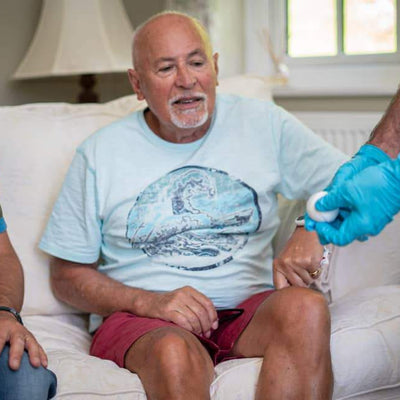Care costs
Social care is not always free and is often means tested. In most cases, you will have to pay for it, and various factors can influence the cost of care. By planning ahead, you can ensure that you have the resources necessary to provide for your care as you age.
Get Your Falls Risk Score
Every 10 seconds, a loved one in the UK has a fall. Find out your risk score in 2 minutes.

Benefits and entitlements
As they age, older adults in the UK can access a range of benefits designed to support them in their later years. Discover information about forms of support and entitlements that can contribute to a more satisfying retirement.
Planning later life
Explore our articles about planning for the future which involves making informed decisions about health, finances, and living arrangements to maintain independence and ensure peace of mind.
Elderly care experts answer biggest questions about care costs

How much does elderly care cost?
Who pays for elderly care in the UK?
What is the average cost of a care home per week UK?

I check the family app at least once a week and what has surprised me most is just how much habit there is to Ann’s daily routine, so actually it is pretty easy to see when something is not quite right.
Daughter-in-law Elizabeth wanted reassurance that Ann was OK when she couldn't be with her. Taking Care Safe Home Alert provides Elizabeth with the insight and peace of mind she needs.

My personal alarm provides security and safety, allowing me to go anywhere and visit anyone. I know that, even if I felt poorly in the middle of the night, help will be available at the touch of a button.
How a Taking Care personal alarm helped Denise remain independent after a health scare.




